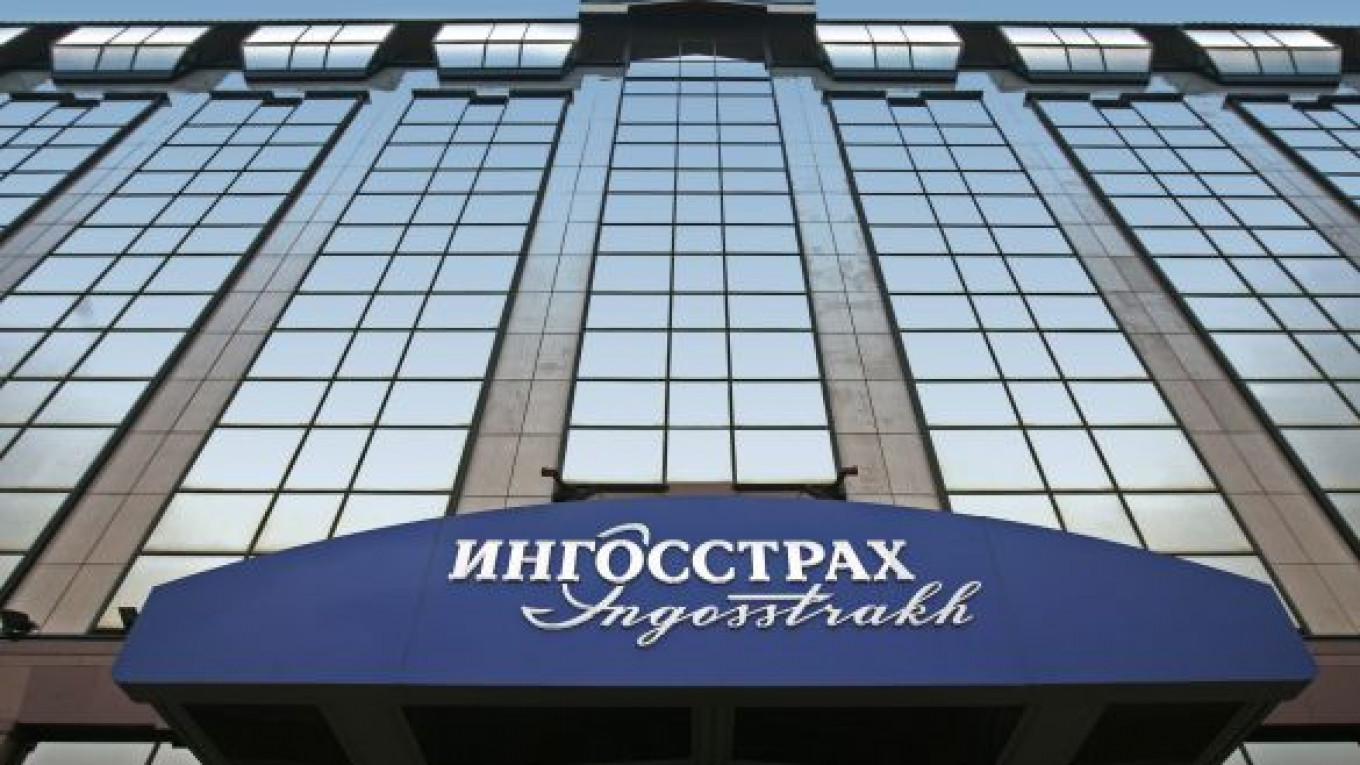Ingosstrakh, an insurer controlled by billionaire Oleg Deripaska, said Friday that a push by Prime Minister Vladimir Putin to introduce mandatory coverage would help insurers grow stronger than the economy.
The Russian insurance market may grow by about 7 percent next year to more than $20 billion in premiums, and at least 10 percent in 2012, Mikhail Volkov, deputy chairman at Ingosstrakh, Russia’s biggest insurer, said in an interview.
“New kinds of compulsory insurance could give impetus to the market,” he said. “As a rule of thumb, the insurance market grows in line with GDP.”
After deadly disasters at a RusHydro hydropower plant last year and a Raspadskaya coal mine in May, Putin demanded mandatory insurance for risky industrial facilities.
Russia’s 10 biggest insurers, including those co-owned by Paris-based AXA and Munich-based Allianz, collect about two-thirds of the country’s premiums, according to data compiled by Russia’s insurance watchdog.
The number of insurers in the country may halve to 300 companies in two years from about 600 now as many companies are failing to attract clients and are incurring losses, Volkov said.
Ingosstrakh expects 50 billion rubles ($1.6 billion) in revenue this year and plans to boost earnings by expanding into the aircraft leasing business, he said.
Based on the valuation of the largest acquisitions in the Russian market, including Allianz’s takeover of Rosno, Ingosstrakh may be valued at about 100 billion rubles ($3.2 billion), Volkov said.
PPF Investments, or PPFI, a Czech private-equity group that owns almost 40 percent of Ingosstrakh, has been battling in court for more access to company management.
Ingosstrakh’s controlling shareholders have been unwilling to consider any reasonable transactions with PPFI, Jan Piskacek, a PPFI spokesman, said in e-mailed comments.
The Czech group is also opposed to Ingosstrakh’s plans for aircraft leasing, he said.
“We perceive PPFI as a competitor and won’t be against it if they sell their stake to a third party,” Volkov said. This could be done via an IPO, he said.
A Message from The Moscow Times:
Dear readers,
We are facing unprecedented challenges. Russia's Prosecutor General's Office has designated The Moscow Times as an "undesirable" organization, criminalizing our work and putting our staff at risk of prosecution. This follows our earlier unjust labeling as a "foreign agent."
These actions are direct attempts to silence independent journalism in Russia. The authorities claim our work "discredits the decisions of the Russian leadership." We see things differently: we strive to provide accurate, unbiased reporting on Russia.
We, the journalists of The Moscow Times, refuse to be silenced. But to continue our work, we need your help.
Your support, no matter how small, makes a world of difference. If you can, please support us monthly starting from just $2. It's quick to set up, and every contribution makes a significant impact.
By supporting The Moscow Times, you're defending open, independent journalism in the face of repression. Thank you for standing with us.
Remind me later.






